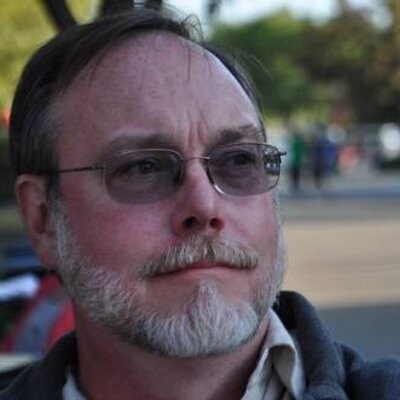He drove from San Antonio to Boulder with a piano in his Prius.
Say again?
“It’s just the piano harp, actually,” says composer/performer Mark McCoin, referring to the massive steel-and-wire gut of a piano. “It was still pretty tough to get in there.”
He needs it for his upcoming show. McCoin is back in Colorado, visiting his former academic home at CU-Boulder for a pair of free concerts with collaborator Max Bernstein on Friday, March 11, and Saturday, March 12. The performance, dubbed "The Feral Piano," consists of three works and features found-and-transformed musical instruments — not to mention transformed traditional musical structures.
“We wanted to dismantle a piano, live, and mike it up, put it on speaker,” says McCoin of the initial impulse. “We wanted to hear every little crack. We wanted to free its inner harp.” In the process, he and Bernstein reinterpreted the piano harp alone, as “aural landscape and orchestra.”
It was a kind of benign hijacking. The two specifically sought out abandoned instruments “to subvert obsolescence and accessibility.” They threw out the rule book, stripped things down to their essentials, beyond improvisation – playing dynamically and even violently, playing in the true sense of doing something simply to find out what would happen. This seemingly bizarre, destructive impulse triggers a compelling, unexpected unleashing of a whole new universe of sound.
Some of the results of these sonic experiments can be seen in the video for a performance of “Outlier,” a collaboration among McCoin, Bernstein, the Boulder Philharmonic and Tom Hagerman of DeVotchKa.
“I knew Tom when we were in the Denver Gentlemen,” says McCoin, referring to the legendary '90s ensemble that pioneered the so-called Denver Sound and spawned 16 Horsepower and Slim Cessna’s Auto Club. “He wanted to write a string score, so we included him as well.” Hagerman’s "Music for Found Piano and Strings" is on the program.
The innovative musician and sound artist gives lots of kudos to his collaborator Max Bernstein.
“I met this guy when he was a grad student,” McCoin says. “He is so amazing, all the work he’s done since; he’s flourished, with people like the Wooster Group and Kaki King. It is so great to see him do all this work! It will be great to play with him again.”
McCoin worked with Hagerman and many others, from Bruce Odland to Ron Miles, in the regional scene back in the day, creating a decades-long blur of brilliant polyrhythmic work, sound installations and more. (Note: Having known Mark for thirty years or so, I was one of of those collaborators, in one instance cavorting across the stage at the Denver Center as a possessed, pith-helmeted archaeologist transformed by the drumming of the Tchotchke people. Long story.) He was a prime mover in saving Rangely, Colorado’s unique acoustic chamber the Tank recently.
He traveled the world and learned new music styles, and scored for dance, theater, radio, television and film. Eventually he found himself in the academic world, and is currently settling in to his new home at the University of Texas-San Antonio, where he will develop and teach a New Media program in the Art and Art History Department.
McCoin is glad to be where he is right now. His only regret is that the listeners today don't seem to be as accepting as in the past.
“The new-wave, punk-rock upheaval was very much a cultural upheaval,” he says. “People in general were more ready to listen to raw stuff. There’s not really a coalition of communities as there was in the past.”
With the wreckage of institutional journalism still smoldering about us, he also misses the feedback from reviewers — which may make him the first musician in history to miss the music writers.
“Hearing from those perspectives, for better or worse, creates a full circle of communication that people just aren’t getting right now,” he says.
“So, now I’m at an educational institution; I’m a professor,” McCoin says. “I don’t have to be beholden to anybody. We can try things, and if nobody likes it, that’s okay. It’s exciting in and of itself. If I have to try to get you to approve it, I can no longer really bring myself to the work. If you are determined to find a way to make yourself acceptable, then you are an entertainer, in a way. There can be something tepid about the accepted.
“So we can say we're doing it for research purposes," he continues. "We can do it and then talk about what was learned. So – it’s science. It is truly experimental work. Can you connect with people, can you be engaging, without a traditional language?”
The Feral Piano by Mark McCoin and Max Bernstein is presented at the ATLAS Black Box Experimental Studio, basement level B2, on Friday, March 11, and Saturday, March 12, at 7:30 p.m. The performances are free and open to the public. For complete information, please visit http://atlas.colorado.edu/events/the-feral-piano.
[
{
"name": "Air - MediumRectangle - Inline Content - Mobile Display Size",
"component": "12017618",
"insertPoint": "2",
"requiredCountToDisplay": "2"
},{
"name": "Editor Picks",
"component": "17242653",
"insertPoint": "4",
"requiredCountToDisplay": "1"
},{
"name": "Inline Links",
"component": "18838239",
"insertPoint": "8th",
"startingPoint": 8,
"requiredCountToDisplay": "7",
"maxInsertions": 25
},{
"name": "Air - MediumRectangle - Combo - Inline Content",
"component": "17261320",
"insertPoint": "8th",
"startingPoint": 8,
"requiredCountToDisplay": "7",
"maxInsertions": 25
},{
"name": "Inline Links",
"component": "18838239",
"insertPoint": "8th",
"startingPoint": 12,
"requiredCountToDisplay": "11",
"maxInsertions": 25
},{
"name": "Air - Leaderboard Tower - Combo - Inline Content",
"component": "17261321",
"insertPoint": "8th",
"startingPoint": 12,
"requiredCountToDisplay": "11",
"maxInsertions": 25
}
]











